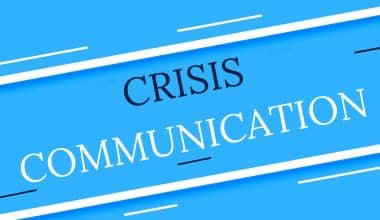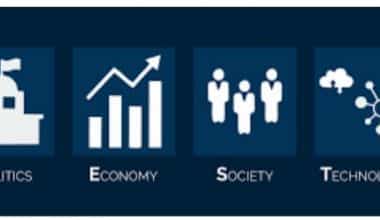Utilization management is a collection of strategies used by people who buy health insurance to assess the effectiveness, efficiency, and appropriateness of healthcare services. Utilization management is now a crucial resource for healthcare organizations. The process of assessing the medical necessity, appropriateness, and effectiveness of healthcare department services and treatments is known as a utilization management system. Additionally, avoidable hospital admissions and readmissions—both of which have the potential to significantly increase healthcare costs—can be avoided with the aid of utilization management solutions. Continue reading if you are interested in learning more about the job of a utilization management nurse or if you just want to know what they do daily. If you want to pursue or advance your career at UM, you might be curious about how utilization management certification can improve your chances and output.
Utilization Management
Utilization management is crucial to the smooth running of the healthcare industry because it ensures that patients receive high-quality, appropriate care. Analysis of treatment efficacy for each patient before, during, and following the delivery of care is the aim of utilization management. Strong utilization management programs assist healthcare organizations in ensuring that patients receive the proper care and treatments at an affordable price. Additionally, it lessens waste while boosting effectiveness and quality. Patients, doctors, administrators, and other stakeholders must all take it into account to deliver healthcare effectively.
Types Of Utilization Management
#1. Prospective Review
The preliminary evaluation takes place before the start of treatment and is the first. Here, determining the procedure’s necessity and excluding the need for additional treatments are the main objectives. It is frequently utilized during routine or urgent medical procedures, but never for ER cases. Insurance companies frequently overturn a doctor’s recommendations for treatment, which can make patients and staff angry. Additional names for prospective reviews include prior authorization pre-service reviews, pre-procedure reviews, and pre-admission certification.
In the field of healthcare, utilization management includes prospective utilization reviews. It entails examining a patient’s case and recommending a course of action to make sure it is both necessary and efficient. Prospective reviews eliminate treatments that are redundant, ineffective, or ineffective but still expensive for the patient or the organization.
#2. Concurrent Review
Concurrent reviews, which take place when therapy is already underway, are the second kind. Monitoring the patient’s development and the resources applied to their care is the aim here. Because insurance providers may later refuse coverage, this is crucial. Additionally, reviewers have the power to discharge a patient earlier than expected or stop treatment early.
One kind of utilization management strategy involves reviewing the patient’s case and treatment plan as you are giving them care. As a result, costs are decreased while quality and efficiency are increased while also ensuring that services are required and effective.
#3. Retrospective Review
Following the conclusion of the treatment, this review is conducted. It focuses on the suitability and efficacy of the remedy, which can be applied in different circumstances. Retrospective reviews, which involve examining patient data after providing care, are a popular type of utilization management strategy. This can assist in finding areas for enhancement and enhancing future healthcare delivery. If you would like to find out more about UM and how it can benefit your company, get in touch with your healthcare provider right away.
Utilization Management in Health Care
Utilization management in healthcare refers to the methods and regulations used to assess the clinical necessity of medical procedures and services on an individual basis. By skipping unnecessary tests and treatments, patients can save money. This service may have an impact on patients, doctors, and hospitals even though it is run by those who pay for healthcare benefits, such as health insurance companies. Utilization management can decrease claim denials. The Utilization Review Accreditation Commission examines patient information and medical records and determines whether prior approval and medical necessity of particular treatments or procedures under the Inpatient Prospective Payment System (IPPS) are required.
Utilization management practitioners look at the following medical services:
- Inpatient days and admission
- Use of emergency rooms
- Skilled facility inpatient admissions
- Health checkups at home
- Outpatient visits
- MRIs and other pricy imaging procedures
- Primary care doctor visits
- Specialty referrals
- Cost per visit
Components of Utilization Management
#1. Step Therapy
It is believed that patients should always begin treatment with a less expensive but equally effective option. The patient can change to a more advanced drug or procedure if it does not have the desired effect.
Step therapy is essential because it guarantees that patients always receive the most affordable treatment available for their condition. Additionally, avoiding using an expensive or experimental procedure or drug out of habit, makes treatments safer.
Here, prior authorization is required by the healthcare program or insurance company to process claims for a procedure or treatment. By preventing drug abuse and overdose, this element of utilization management can help make medical procedures safer for patients. Prior authorizations prevent this from happening because some doctors might, for a variety of reasons, prefer a drug that is not in the patient’s best interests.
#3. Quantity Limits
This establishes the maximum dosage a patient may receive over time. Quantity restrictions are necessary for both safety and financial reasons. It ensures that patients only take the recommended dosage. In addition, it aids in waste reduction for the hospital. This program regulates the quantity or frequency of fill-ups. These restrictions support responsible, economical drug use. Additionally, they aid in lowering waste and overuse.
Benefits of Utilization Management
Improvements in care delivery effectiveness and quality, cost and waste reduction, and patient outcome optimization are some of the major advantages of health care. Patients who participate in utilization management programs benefit from easier access to care, better results, and lower costs overall. Retrospective reviews and other UM tools can help healthcare providers identify problem areas and make the necessary adjustments to patient treatment plans.
With the aid of utilization management, healthcare organizations can make sure that patients receive the best possible treatment based on their individual clinical needs. Shorter hospital stays, fewer complications, and improved health outcomes are all possible results of this.
Utilization management is founded on evidence-based practice, which means it is supported by the most recent findings and recommendations. Utilization management can help make sure that patients receive the best possible care by following evidence-based recommendations.
The operations of healthcare organizations can benefit from utilization management. Some of its benefits include lower costs, more efficient treatments, better data, and better resource allocation. Utilization management techniques are put into practice to increase the effectiveness and quality of care delivery while lowering costs and waste.
With the help of these methods, care can be delivered more efficiently and with better patient outcomes at lower costs. Many insurers are now facilitating UM activities by utilizing cutting-edge technologies and tools, such as real-time collaboration platforms and data analytics tools.
Utilization Management Challenges
Utilization management does have its drawbacks, although it can be very advantageous for doctors, patients, and insurers.
The Utilization management is that because of the complexity of healthcare delivery and the many interrelated factors that affect patient health, it can be challenging to evaluate long-term outcomes. This implies that there might not be as much information available for use in decision-making, implementing UM strategies more challenging.
When a patient needs an experimental procedure that is not frequently covered by insurance, it may be challenging for them to obtain the necessary insurance approval. Healthcare professionals must show that a procedure is both medically necessary and likely to benefit the patient to increase the likelihood that it will be approved. It might be necessary to spend a lot of time and resources on this by giving insurance companies thorough documentation and proof of the procedure and its potential advantages.
Utilization Management Department
The Utilization Management (UM) department ensures that everyone in Partners’ catchment area has equitable access to the necessary care. Utilization Management (UM) department handles all UM tasks, including concurrent review, discharge planning, and others. The Utilization Management (UM) Department assesses and determines coverage for medical care services for members and providers, ensuring appropriate use of resources.
As much as possible, the utilization management department coordinates and plans out medical care. For specific tests, procedures, and hospital stays, the staff grants approval. In addition to being offered at a customary and reasonable price, this guarantees that the services are medically necessary. The utilization management division may conduct statistical studies contrasting the costs of disjointed care with those of coordinated care.
Certification in Utilization Management
Certifications in utilization review assist nurses in learning essential skills required to work as UR nurses. Any certification from a nursing organization that involves case management and quality control and is accredited falls under the category of utilization review certification. A few certification programs provide aspiring utilization review nurses with the training and credentials they need to pursue a career in nursing.
#1. Certification in Health Care Quality and Management (HCQM)
Nurses and other healthcare professionals can enroll in a certification program offered by the American Board of Quality Assurance and Utilization Review Physicians (ABQARP). Numerous significant subjects are covered, such as quality assurance, patient safety, risk management, and transitional care. Individuals need to apply for the ABQARP to become certified in HCQM. Based on this, the board members can decide whether to permit people to sit for the exam.
A core body of knowledge (CBK) course is available online, though it is not required to pass the exam. It can be taken by individuals to aid in exam preparation. This multiple-choice test is available for online testing. The ABQARP allows four hours to complete the test.
#2. Health Care Risk Management Certificate (HRM)
Professionals in the medical field with less than five years of experience can earn this certification from the American Society for Health Care Risk Management. In-person instruction typically lasts 13 hours or two days. Three modules make up the HRM certificate program:
The course’s introductory module discusses the fundamentals of risk identification, analysis, and management in the medical field. They also learn more about basic topics like consent forms, financing options, insurance claims, and others.
Applications in Healthcare Risk Management: In the second module, students have the opportunity to put what they learned in the first module to use in dealing with more intricate healthcare problems. These include the continuum of care, other important areas, and informed consent in the healthcare industry.
#3. Advanced Forum in Healthcare Risk Management
In the third and final module, participants will have the opportunity to learn about telemedicine, contract reviewing, and public health. They will also have the chance to ask questions about particular scenarios or course material.
#4. Nursing Case Management Certification (CMGT – BC)
Several nursing certifications, including the Nursing Case Management Certification, are available from the American Nurses Credentialing Center (ANCC). The knowledge of case management, care coordination, patient advocacy, and healthcare insurance laws can be acquired by entry-level nursing professionals with RN licenses through the use of this certification. People who want to become certified in nursing case management must apply, study the provided material, and pass the exam.
How to Become a UM Nurse and Obtain a Utilization Management Certification
#1. Identify the Certification for Utilization Management That Best Meets Your Needs
Every utilization review certification has different requirements for applicants, ranging from years of professional experience to educational backgrounds. As a result, be sure to review certification requirements and choose the one that corresponds with your current academic standing and professional accomplishments.
#2. Apply for Certification
You typically need to include a few essential components in your application to get a utilization management certification. Your most recent resume and cover letter should be uploaded. You might also be asked to upload a copy of your RN license and provide some background information on why you want to finish the certification program.
#3. Examine Study Materials and Finish Credits
Typically, there is a deadline within which you can sit for an exam to earn a utilization management certification. This allows you to dedicate the right amount of time to studying. Depending on the demands of the certification program, you might need to finish independent studies in addition to online or classroom courses.
#4. Complete the Certification Exam
Check the exam information for your certification program to see if you can take it online or if you need to find a testing facility close to your home. You may have a set amount of time in which to finish these tests, which typically take a few hours.
#5. List Your Credentials on Your Resume
Once you have been certified by a utilization management, update your resume for any upcoming job applications. In the sections titled “Skills,” “Education,” or “Certifications and Accomplishments,” your resume may mention your certifications. Do not forget to mention when you received it, the name of the accredited organization, and some information about what you learned.
#6. Submit Applications for Utilization Management Nursing Jobs
Include copies of your resume, cover letter, RN license, and certification document with your job applications if you are a nurse seeking a position in urology to demonstrate your expertise in the field.
#7. Think About Obtaining Multiple Certifications
Since there is not a specific certification for utilization review, getting additional certifications will help you further strengthen your credentials. Planning for healthcare, coordinating patient care, and case management are preferred areas.
Benefits of Utilization Management Certification
#1. Credibility and Recognition
Your accreditation with the organization demonstrates your competence and commitment to UM’s standards and best practices. This proves your suitability for performing UM duties honestly and efficiently. Obtaining a UM certification will help you to win the respect and loyalty of your coworkers, employers, and clients. You can also stand out from the crowd to increase your chances of landing a job, a promotion, or a raise.
#2. Growth and Development on the Job
You have the chance to learn new ideas, methods, and resources through UM certification, which can improve your UM practice. You must also continue your education and get recertified to keep your certification. This calls for you to keep up with the most recent advancements and trends in UM. This will help you achieve your career goals, expand your network, and improve your professional skills and knowledge.
#3. Quality Improvement and Patient Satisfaction
Your ability to deliver and use healthcare more effectively and efficiently is aided by UM certification. It gives you the ability to evaluate, oversee, and organize care using standards, instructions, and protocols that are supported by evidence. Additionally, it gives you the ability to interact and work together with patients, healthcare professionals, and payers to guarantee that the care is necessary, appropriate, and beneficial. By doing this, you can improve patient outcomes while decreasing waste, errors, and risks.
Utilization Management Nurse Salary
A registered nurse who collaborates with health insurance providers to guarantee that patients receive the care they require and that it is delivered cost-effectively is known as a utilization management nurse. These nurses frequently have experience working in a hospital environment and are knowledgeable about the various treatments and procedures available.
A utilization management nurse makes sure that medical services are delivered properly. In addition to reviewing patient clinical records, creating clinical appeals, and managing staff, their job duties also include working in a hospital, medical office, or other clinical setting. A nursing degree and an active license as a registered nurse are requirements for the position of utilization management nurse. The majority of those who work in this position have a background in case management and utilization review.
You must obtain a nursing degree, become certified as a registered nurse by passing the NCLEX exam, and obtain state licensure to work as a utilization management nurse. You must also possess years of work experience. Additionally, many people earn their Certified Case Management (CCM) certification. Since this is a supervisory position, it is crucial to have leadership skills as well as the ability to oversee and work with a team. You will perform your duties as a Utilization Management Nurse in a hospital, medical office, or other healthcare facility. You must possess the highest level of compassion, responsiveness, and attention to detail.
Duties of a Utilization Management Nurse
#1. Reviewing Patient Records
You will be in charge of reviewing patient records as a utilization management nurse and deciding whether to cover certain expenses based on the data in those records. You must fully comprehend the clinical aspects of the case and the applicable insurance laws to accomplish this.
#2. Choosing the Required Level of Care
The process of examining and assessing the medical necessity, appropriateness, and efficacy of healthcare services is known as utilization management. Choosing the appropriate level of care for each patient will fall under your purview as a utilization management nurse. Making decisions regarding a patient’s admission to the hospital, their transfer to a less intensive level of care, or their management as an outpatient are examples of this.
#3. Interprofessional Care Coordination
It will be your job as a utilization management nurse to coordinate the care of various providers. To ensure prompt and effective services, this may entail collaborating with physicians, hospitals, and other healthcare organizations.
#4. Choosing the Practices and Regulations That Will Best Guarantee Efficient Use
You will have to choose the procedures and guidelines that will best ensure efficient utilization in your capacity as a utilization management nurse. The individual will require a thorough knowledge of the healthcare system’s operation to accomplish this. You must also be familiar with the various forms of insurance and how they operate. You will also need to be proficient in communicating with patients and medical personnel.
#5. Preparing Analyses and Reports on Notable Resource Utilization Trends and Their Effects
As a utilization management nurse, you also have the duty of creating analyses and reports on important trends in resource use and their effects. You will be required to pinpoint any issues or problems with resource usage and offer suggestions for how to make things better. You might occasionally be required to present your findings to senior management or other influential decision-makers. This is a crucial component of the job because it has the potential to raise healthcare quality while saving the organization money.
#6. To Increase Service Use, Consult Medical Professionals and Other Experts
One more duty you will have as a utilization management nurse is to consult with doctors and other professionals to increase service utilization. To improve patient care, you will work to make sure that services are utilized properly and effectively. This will entail talking to providers, running utilization reviews, and coming up with suggestions for improvement.
Important Qualities For Utilization Management Nurse Success
#1. Communication
To succeed in your role as a utilization management nurse, you must have excellent communication skills. Utilization management nurses needs good communicators because they will be interacting with patients, families, doctors, and other healthcare professionals. The ability to communicate with insurance companies and document patient care plans is another requirement for utilization management nurses.
#2. Proficient Proficiency With Spreadsheet and Word Processing Software
To be a successful utilization management nurse, you must have a solid understanding of word processing and spreadsheet software. Additionally, you will need to have the ability to manage finances and maintain accurate records. Nurses in these roles can benefit from the organization tools provided by word processing and spreadsheet programs like Microsoft Word and Excel.
#3. Collaboration
You must have the ability to work well with others if you want to become a utilization management nurse. The coordination of patient care will require your ability to collaborate with other nurses, doctors, and staff. This can be a challenging skill to master, but it is essential for success in this field.
#4. Time Management
If you want to succeed in any field, learning how to manage your time effectively is crucial. However, if you are a utilization management nurse, it is crucial. The coordination of care and guaranteeing that patients receive the best possible level of care for their requirements are the responsibilities of utilization management nurses. It may be difficult to keep up with everything that needs to be because of how demanding this job can be without strong time management skills.
#5. Empathy
Understanding both sides of every situation is essential for a utilization management nurse. You will need to be able to comprehend both the patient’s point of view and the doctor’s directives.
#6. Detailed-Oriented
One of the most vital abilities a Utilization Management Nurse can possess is attention to detail. This is because you must be able to evaluate medical records and other documentation to successfully perform this job and come to decisions about a patient’s care. As a result, being able to pay close attention to detail will be necessary for you to make the best decisions possible regarding a patient’s care.
Salary of A Utilization Management Nurse
An annual average salary of $91,128 is typical for utilization management nurses. The total will come to $43.36 or $7,520. $5,170 per month or $29.84 per hour is the entry-level salary for those just entering the field. This equates to a $62,060 yearly salary. Place of employment, level of education, and experience all affect utilization review nurse salaries. Rhode Island, California, Delaware, Oregon, and New York have the highest average salaries for utilization review nurses.
In the United States, a Remote Utilization Management Nurse will typically earn an average of $42.32 per hour as of July 19, 2023. Utilization Management Nurses earn an hourly wage of $43.36 on average in the US. In the US, the average salary is $86,992, or $91,128 annually.
Benefits of Utilization Management Nurse
#1. Your Salary Will Be Very Good
Being a utilization management nurse has many benefits, one of which is the high pay. You will be able to live comfortably and afford the finer things in life. Owning a lovely home, a nice car, and taking wonderful vacations will all be possible for you. With your large amount of extra cash, you will be able to maintain a luxurious standard of living. So, if you are looking for a well-paying career, you can choose utilization management nursing.
#2. The Flexibility in Your Life Will Increase
The added flexibility you will have in your life is yet another benefit of becoming a utilization management nurse. A more conventional nursing position may bind you to long hours and little downtime. As a utilization management nurse, however, you will have much more control over your schedule. Depending on your place of employment, you have the flexibility to choose when to work while still having plenty of time for your family and extracurricular activities. Let us say you want a nursing position that allows for more flexibility. Then you might be a great candidate for utilization management nursing.
#3. You Might Be Able to Work Remotely
The possibility of working remotely is one of the biggest benefits of being a utilization management nurse. Having young children at home can make this a particularly valuable perk. You will be able to reduce your childcare expenses and gain more scheduling flexibility.
Working from home also saves you from having to commute to work every day. Instead of battling traffic and other commute-related problems, you could save a ton of time, money, and stress by doing this.
#4. Your Work Will Not Require Much Physical Effort
The fact that your job will not require much physical effort is another benefit of becoming a utilization management nurse. You won’t have to lift heavy objects or stand for long periods. As a result, you will be able to prevent some of the typical injuries that nurses frequently experience.
#5. You Will Not Need to Give Direct Nursing Care
You will not need to perform direct nursing care in your role as a utilization management nurse. Making sure patients receive the care they require while also enhancing the healthcare system’s effectiveness will require you to work behind the scenes. You will not have a higher risk of contracting an infection as a result. You might even discover that your work contributes to the prevention of disease.
#6. You Can Find Work Anywhere
Anywhere can hire a Utilization Management Nurse. As a nurse who specializes in utilization management, people all over the nation will need your help. Being so in demand means that you can choose where you want to live and work.
What Is the Main Function of Utilization Management?
It aids in cost savings. The need for utilization management has grown as healthcare costs have increased. Healthcare personnel evaluate every procedure performed on patients, both before and after, to determine whether it is effective and necessary. The ability to only approve valid claims gives insurance companies another advantage.
What Are Two of the Main Goals of Utilization Management?
The main objectives are to guarantee the provision of effective and efficient healthcare, to lessen the abuse of inpatient services, and to encourage the provision of high-quality and secure patient care during the inpatient portion of the care.
Utilization management (UM) is a sophisticated procedure that seeks to enhance patient care, lower expenses, and enhance population health.
Reducing claim denials is utilization management’s third objective. UM, reviews can gather information from procedures, giving medical professionals the knowledge to support their claims.
What Are the Three Types of Utilization?
- Prospective review
- Concurrent review
- Retrospective review
What Is Utilization Management Process?
Utilization management is the process of analyzing and tracking how medical services use it to determine their suitability and standard. Healthcare organizations are becoming more aware of operational costs, which can have a significant impact on the bottom line. Utilization management (UM) is a process that analyzes each treatment, service, procedure, and facility that healthcare personnel give to a patient and determines whether it is effective, appropriate, and medically necessary.
What Is Utilization Management Important in Healthcare?
Utilization management is crucial to the smooth running of the healthcare industry because it ensures that patients receive high-quality, appropriate care. Utilization management seeks to evaluate each patient’s response to care before, during, and after it has been provided.
Conclusion
Prior authorization is an example of a managed care strategy. This strategy help payers, especially health insurance providers and you can refer to as utilization management (UM), also known as utilization review. Evaluating the appropriateness of benefits before they are provided using standards or criteria that are based on evidence, aids in containing the cost of health care. Given the complexity of American healthcare laws and the rising cost of prescription drugs, all parties involved in the prior authorization process need to comprehend utilization management.
Related Articles
- Average Nurse Salary in 2023
- CERTIFIED NURSING ASSISTANT: Definition, Duties, Salary, Program & How to Become One





